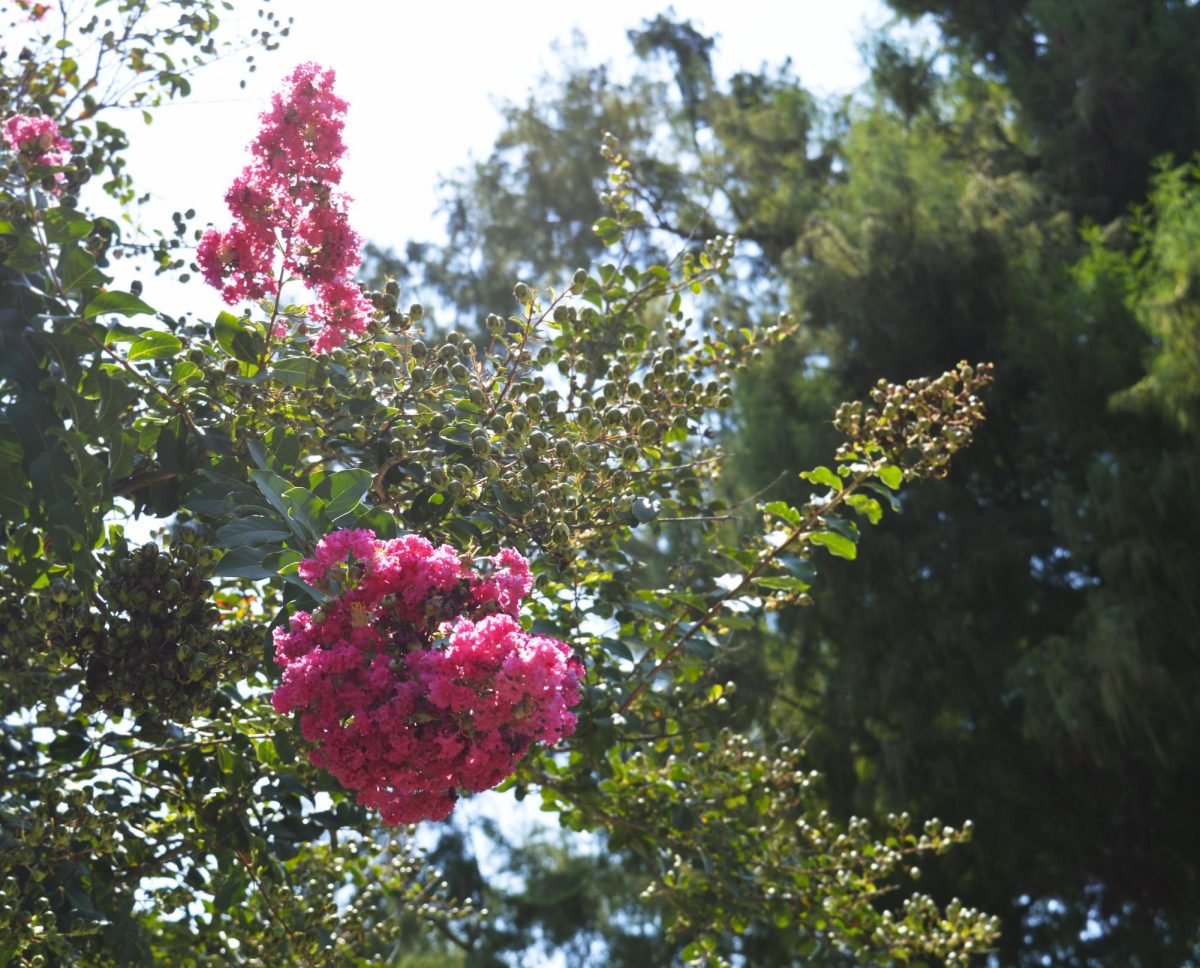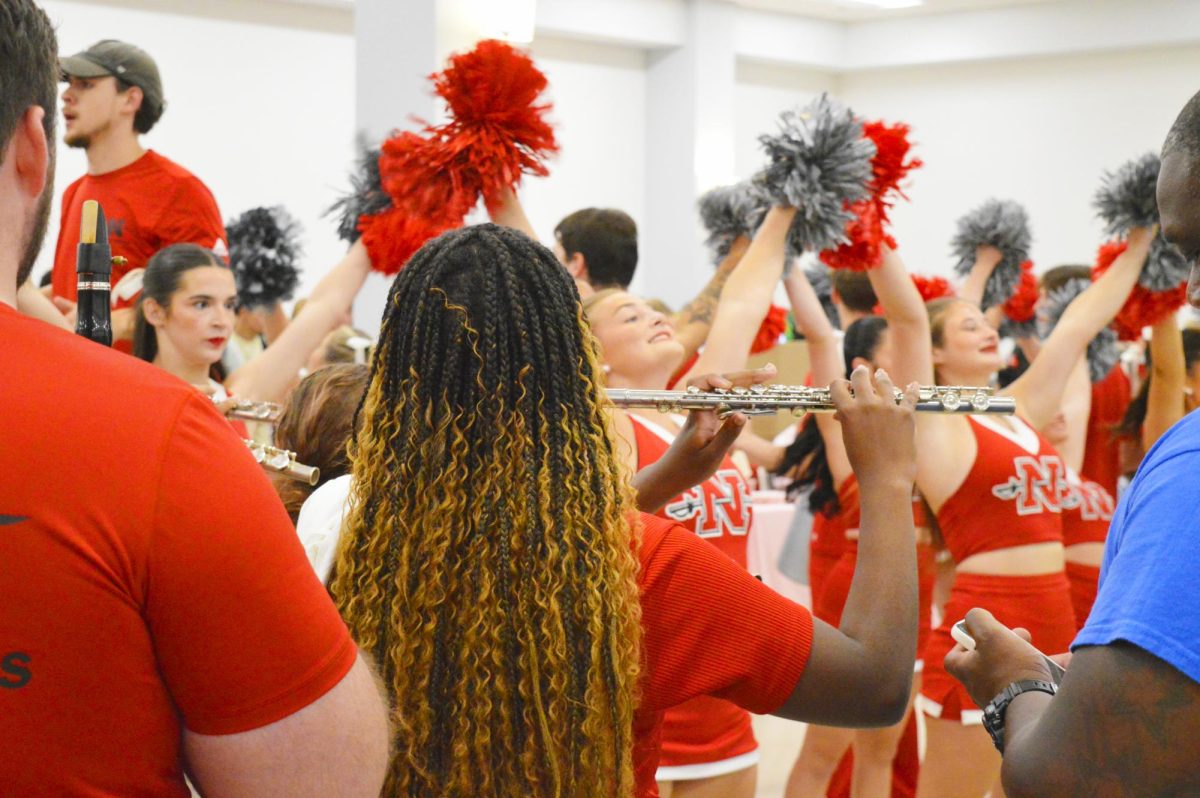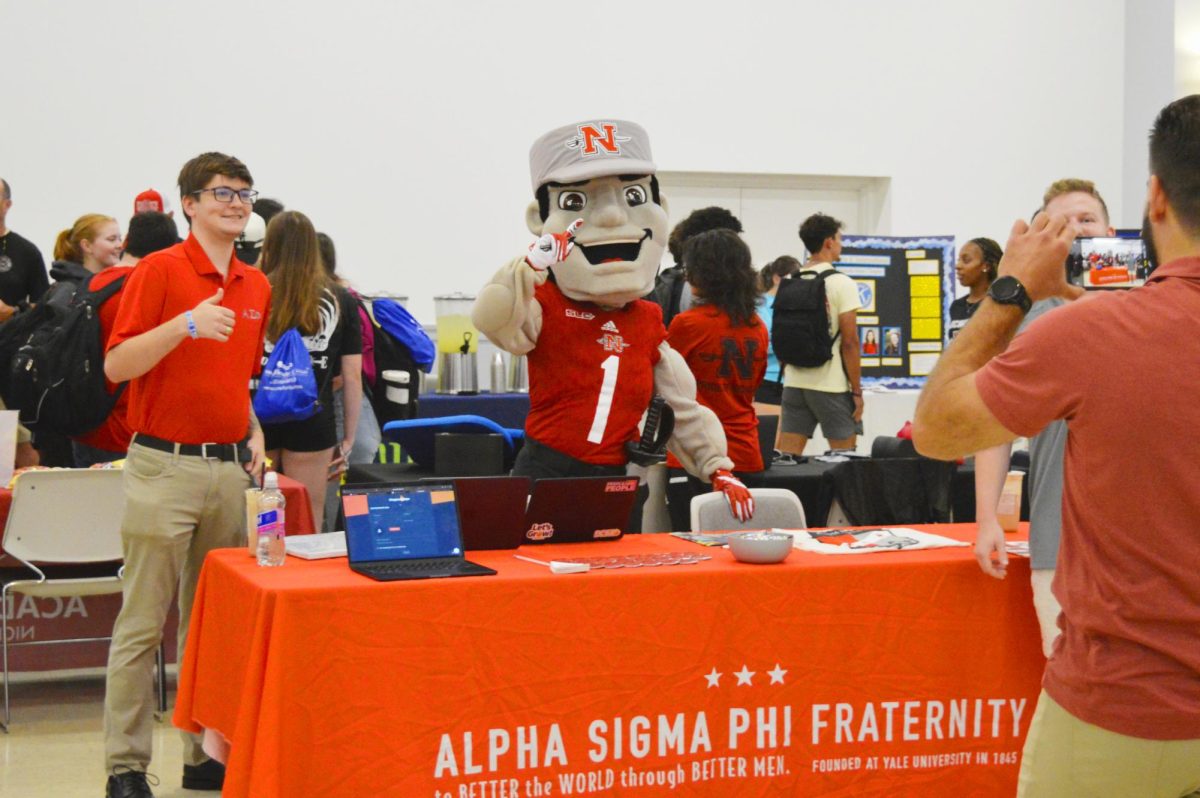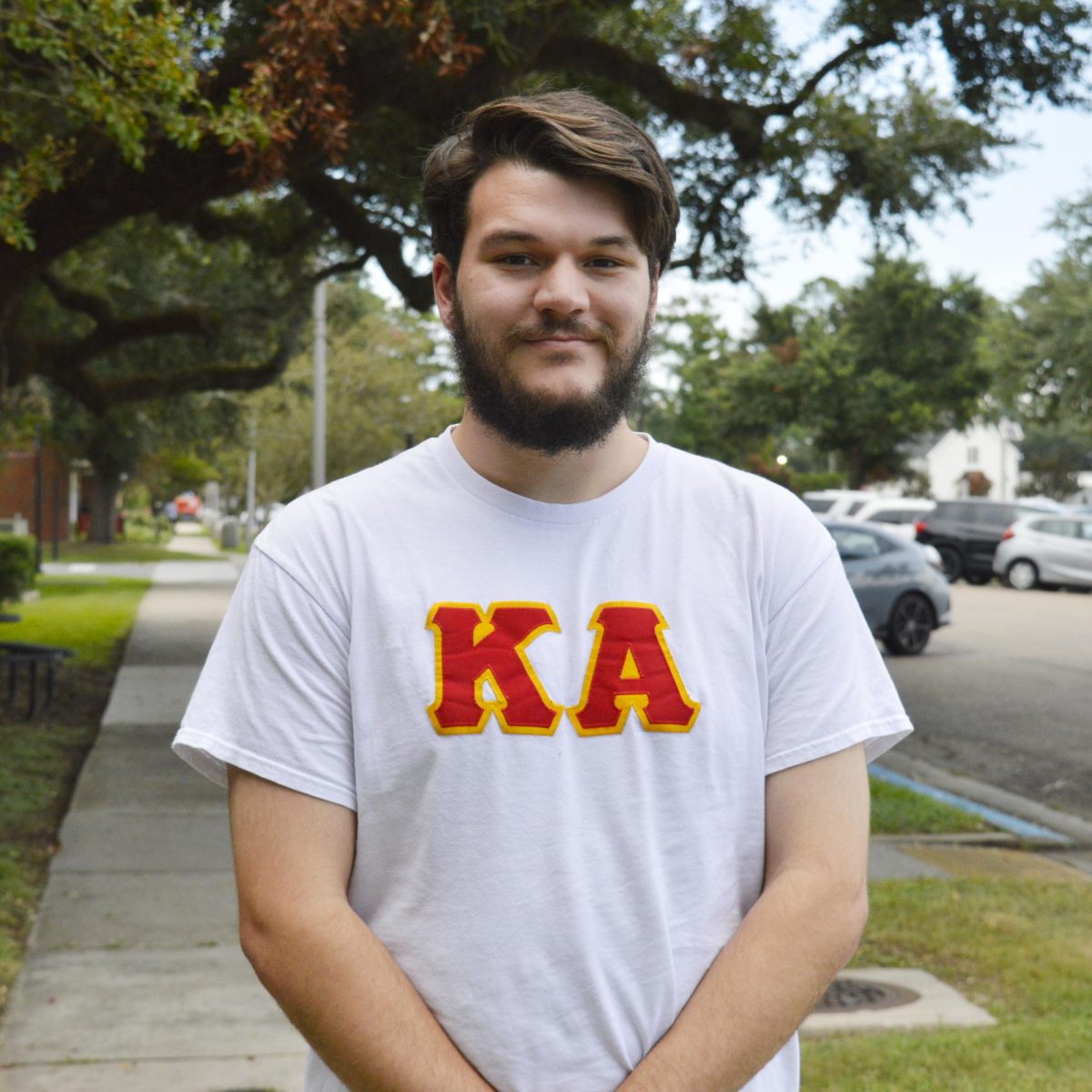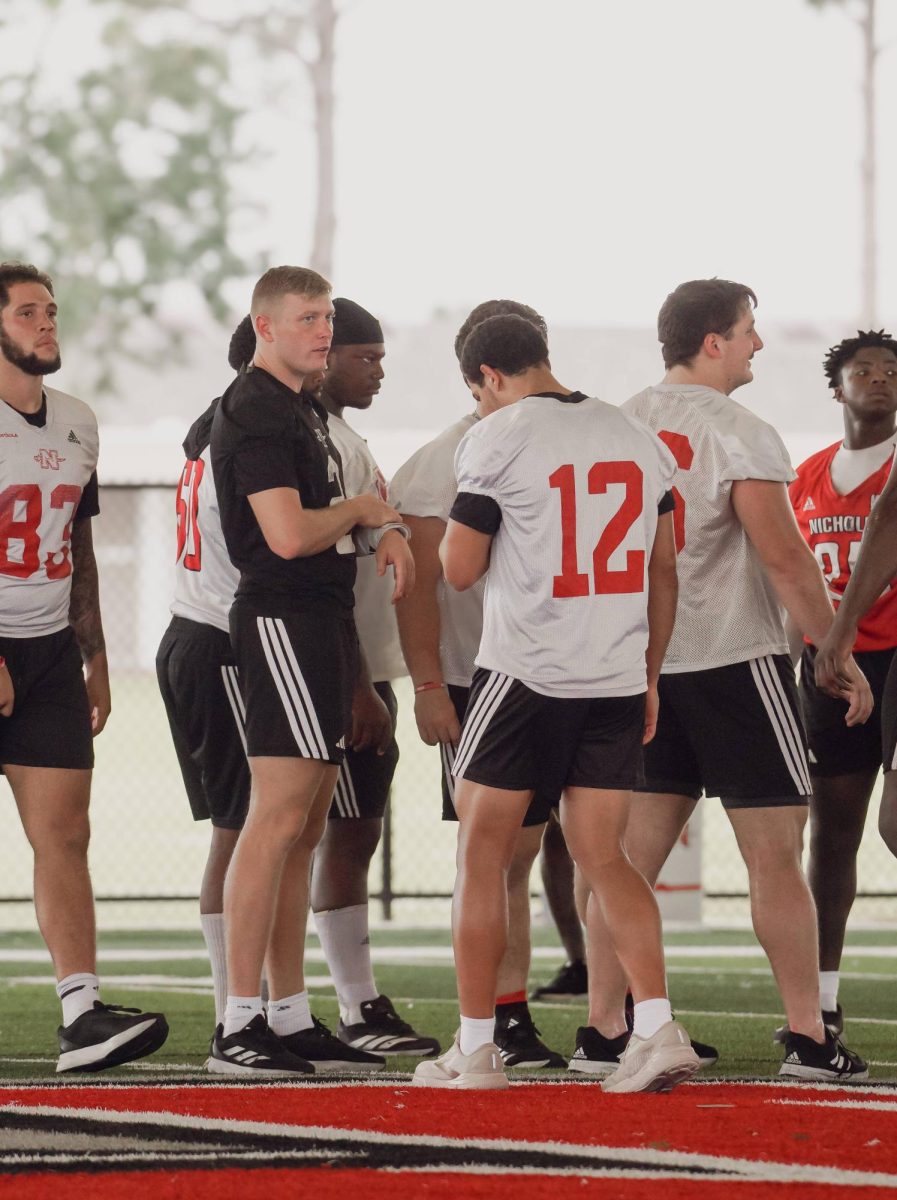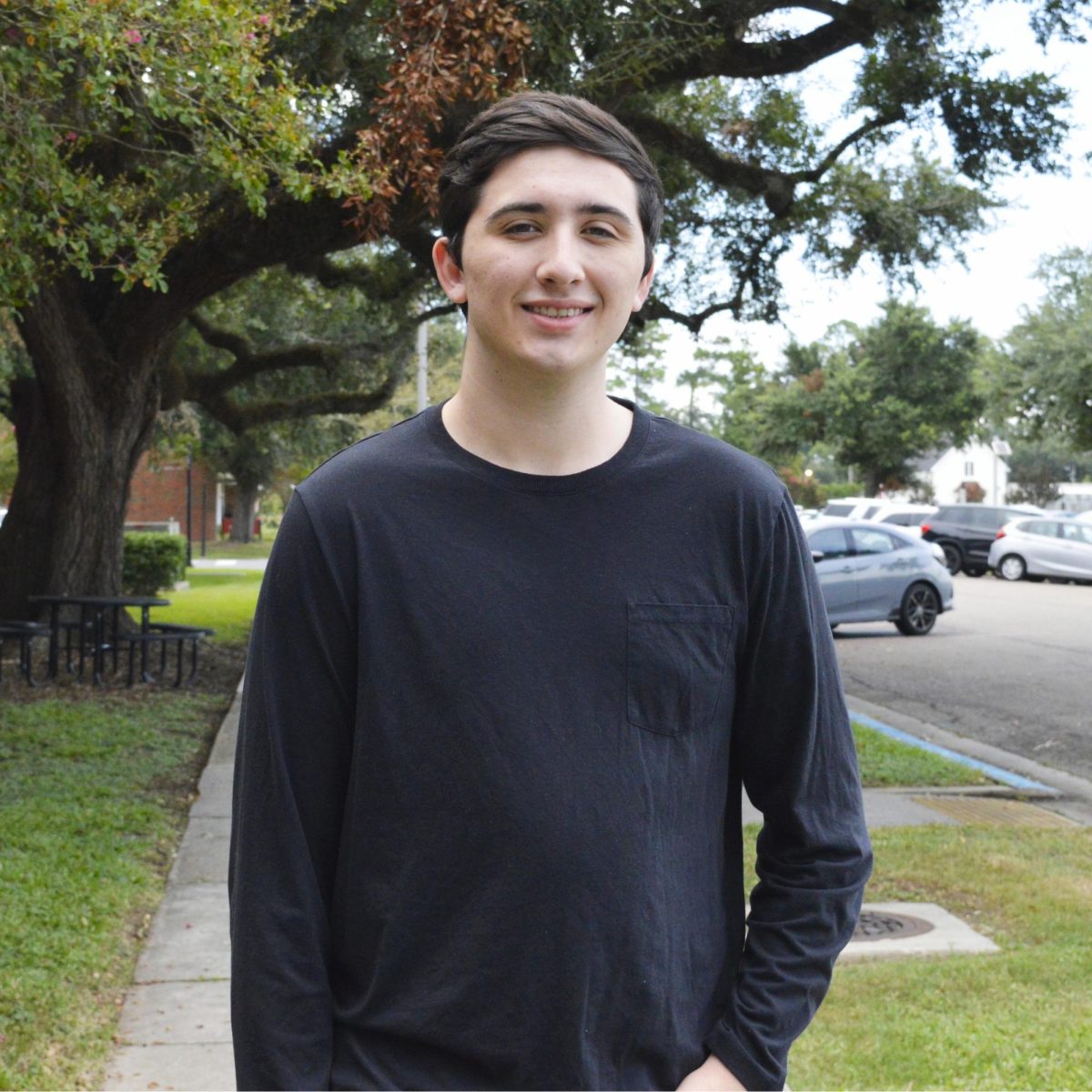Aristotle once wrote, “All men by nature desire knowledge.” This quote holds true for two Nicholls professors.John Doucet, associate professor of biological sciences, and Chris Pena, associate professor of nursing, are not only professors at Nicholls; they are also students.
Doucet is enrolled in English 312, creative writing seminar. He is not enrolled in this course to earn a degree. He already has a Bachelor of Science in chemistry and a doctorate in biochemistry and molecular biology.
“I am doing it for fun. I have written several plays, and I want to try to write other things,” Doucet said.
Pena on the other hand is working towards a Bachelor of Arts in history. He will add this degree to his list of several others. He has a bachelor’s degree in theater, an associate’s degree in nursing, a bachelor’s degree in nursing and a master’s degree in nursing.
“This is something I am doing basically for fun … not fun, but to enlighten my world,” Pena said.
Being a student after teaching for a number of years has been quite an experience for both professors.
“I have never realized that teachers suffer so much,” Doucet said while laughing. “It is really an odd thing. It is hard to explain; it is really a strange feeling being a student after being on the other side for so long,” he added.
Pena says being a student makes him aware of the pressures facing today’s students. “I can sympathize with the struggles of your average undergraduate student,” he said.
He explains how he does not face the same pressures as other students face because this is not “life or death” for him. “It is not life or death for you (students), but if you do not get your degree, then where do you go? I already have a degree,” Pena said.
This also creates an out of the ordinary situation for the students in these classes. The people who once were their professors are now their peers.
“I ask them (students) to call me by my first name in class, while I am in their class,” Doucet said. He also tries to be a normal participant in the class.
Doucet hopes that the students do not treat him differently, but says that it is probably inescapable. “They (students) probably do not criticize other faculty around me,” he said.
Pena has actually had some of the students he taught in classes with him. One of his students he is teaching in his off-campus nursing class is currently in his economics class. “We vent back and forth to one another,” he said.
Although Doucet does not have students he taught in class with him, he said it would be fun to have that happen. “It would be fun to be commiserating with a student who suffered by me,” he said.
Another viewpoint that these professors have is that the people who were once their peers are now their professors. Doucet’s professor sometimes asks for his perspective in class, but he does not want any special treatment. “I think in a way I should be graded harder because I have much more experience than the other students in class and more should be expected of me, perhaps,” Doucet said.
Pena does not even know if his economics teacher knows that he is also a professor. He explains that the nursing department and the economics department are located on opposite sides of the campus and the departments rarely see each other. In his history classes, however, they do know that he is a professor.
Doucet is coming away from this experience with a new perspective when students come up to him and say they have a hard time keeping up with his class. He now says he can tell them “I know exactly what you mean.”
He wishes he had more time to take other classes, but says he will make sure in the future that he carves out time for it.
“The best thing for me is I have all kinds of new perspectives that I never had when I was an undergraduate,” Doucet said. “It is really a powerful thing to have that perspective. I am enjoying my new status as a student.



